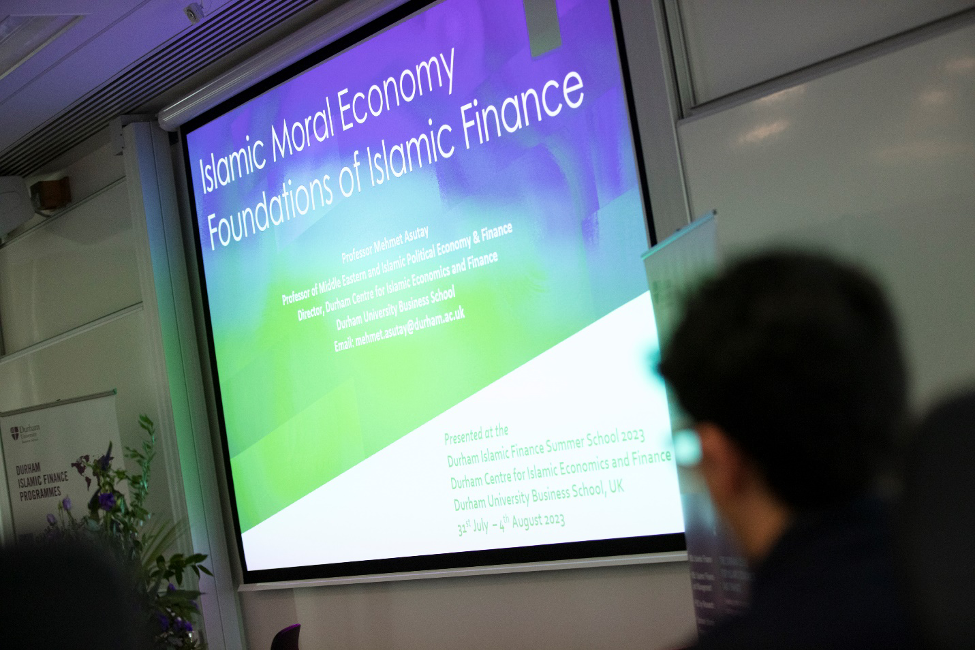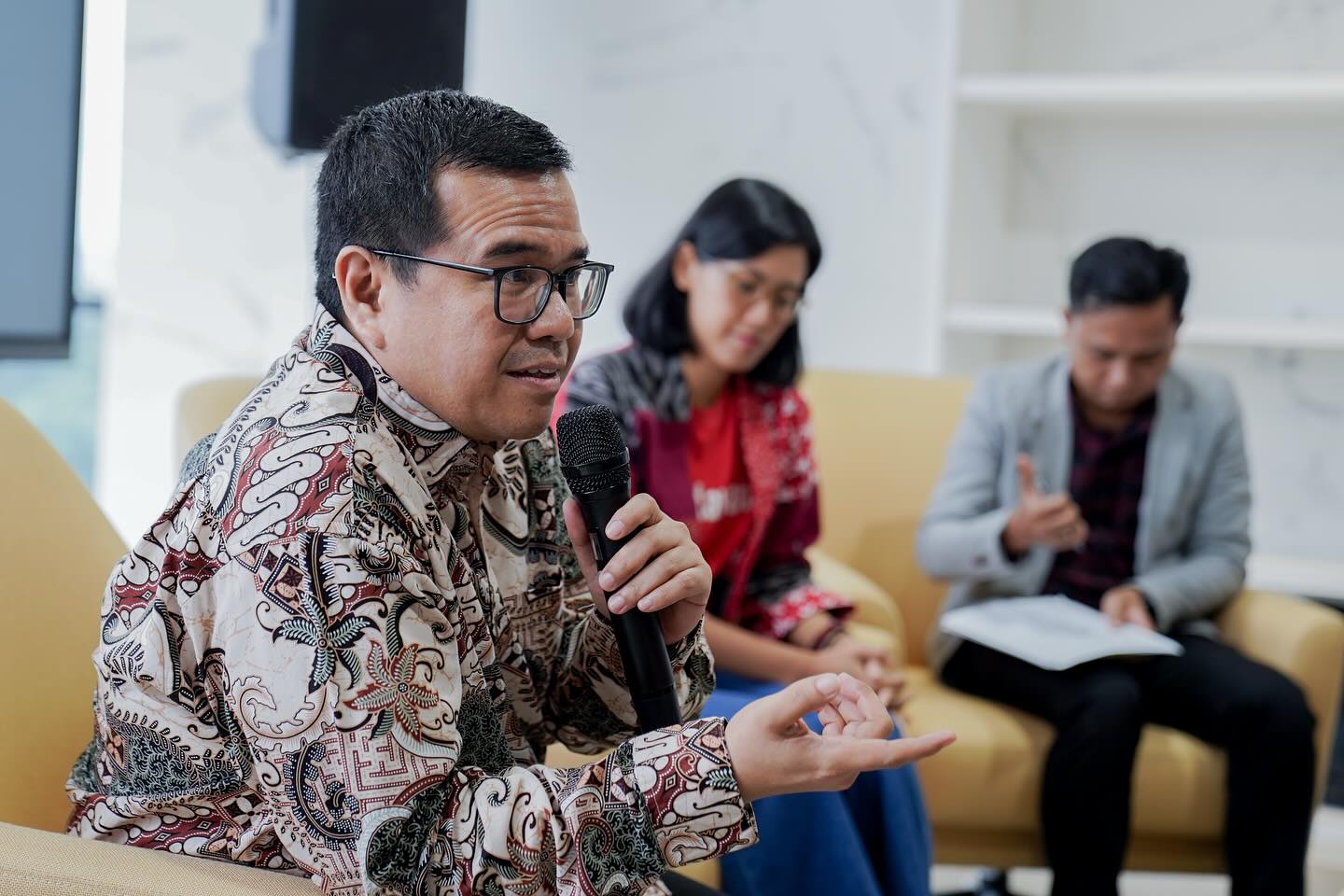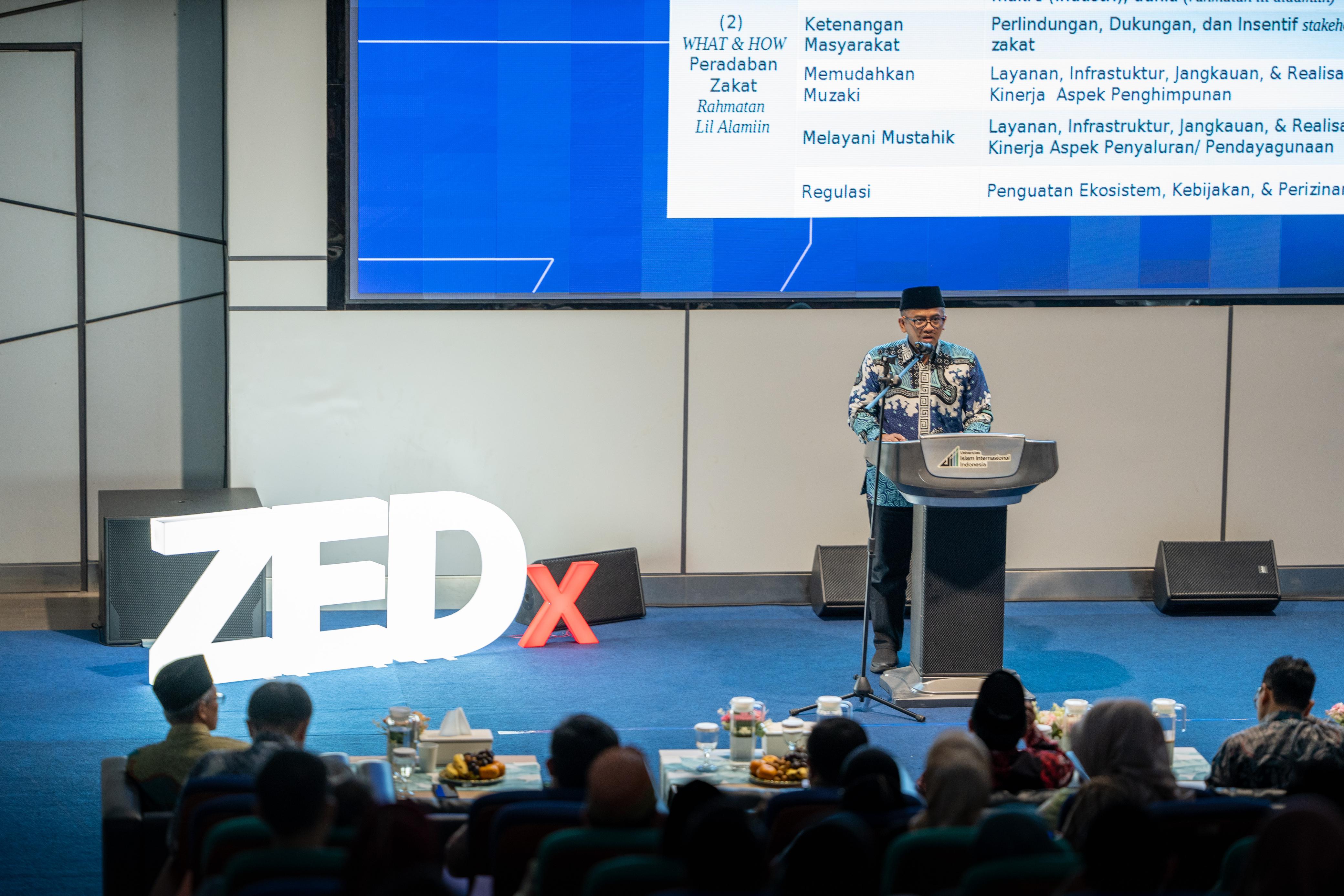Inclusivity and Product Development, Two Keys to Global Impact of Islamic Finance
August 26, 2024By Abdurrahman Faqih Mukhlish*

DURHAM – During the 2024 Durham Islamic Finance Summer School (DIFSS), Iqbal Khan, the CEO of Fajr Capital UAE, stated that global Islamic financial assets are predicted to exceed six trillion USD by 2026. The strong value of Islamic finance and its gradually expanding penetration have led to exponential growth in the industry over more than 50 years.
Islamic finance has overcome several regional and global economic challenges, making strong progress, but it still has a long way to go to create a truly global impact. Iqbal highlighted three things necessary for Islamic finance to have a greater effect.
First, inclusive economies are required. As the world begins to deglobalize, governments in Islamic or Muslim-majority countries need to develop strong Islamic economic frameworks and allocate capital to sectors that generate value.
Second, Islamic finance also requires inclusive institutions where the public plays a part in governance. Transparency, meritocracy, accountability, independence, and inclusivity are the keys to forming inclusive institutions.
Third, inclusive finance, which enables and facilitates public participation in the financial system and provides opportunities for economic gain, is one of the keys to Islamic finance’s success on the global stage.
Currently, there are over 1,500 Islamic financial institutions worldwide, including more than 500 Islamic banks in 72 countries and over 250 Islamic Fintech companies. This is a significant asset that requires continuous upgrading to maximize its value.

In addition to these factors, global Islamic finance also needs innovation and development in its products. Dr. Shaher Abbas, the founder and CEO of Islamic Finance Initiation Network (IFIN) Bahrain and Executive Director at Islamic Finance Advisory & Assurance Services (IFAAS) United Kingdom, emphasized the importance of innovation and the development of Islamic financial products to address financial issues within society.
In his view, the success of a financial product depends on its creativity, innovation, and the benefits it provides as a solution. Successful financial institutions are those that continuously develop superior products and services that offer benefits and added value to their customers.
Dr. Shaher, during the DIFSS event, stated that the factors determining the success of product development include a clear vision and strategy, market planning and execution, innovative product features, availability of resources, good management commitment, and the time estimation from the initial conceptualization of the product until its launch in the market.
Dr. Shaher also acknowledged that Islamic financial products require more variables compared to conventional financial products. An Islamic financial product must meet three main requirements, namely compliance with Sharia, adherence to applicable regulations, and market viability.
However, generally speaking, the products offered are not much different from conventional financial products; it is the process and structure that determine whether they can be categorized as Sharia-compliant or not. Therefore, Islamic financial institutions need to carefully analyze the products that are needed and accepted by the market.
____
*) Abdurrahman Faqih Mukhlish is a UIII student in the Master of Finance in Sustainable Finance program attending the 2024 Durham Islamic Finance Summer School (DIFSS).
- Key Social Science Debates in Islamic Studies: Insights from Prof. Stéphane Lacroix at UIII
- Indonesia Introduces New Approach to Enhance Students’ Higher-Order Thinking
- Sex Trafficking Disguised as Secret Marriage: Dr. Zezen’s Lecture at SOAS University of London
- Islam and National Identity: Dr. Andar Nubowo on Indonesia’s Moderate Islamic Framework
- Green Ramadan: A Sustainable Initiative in the Sacred Month
- Prof. Dr. Phil. Sahiron: Bridging Classical and Contemporary Quranic Studies
- Joel N. Lohr on Indonesia, Higher Education, and Intercultural Dialogue
- Prof. Sahiron Syamsuddin Affirms Ministry’s Support for UIII-Al Azhar Partnership
- 'Indonesia Has Strong Commitment to Islamic Knowledge': Al-Azhar Rector at UIII
- A Green Awakening: How Indonesia’s Muslim Communities Are Leading the Charge for Sustainability


